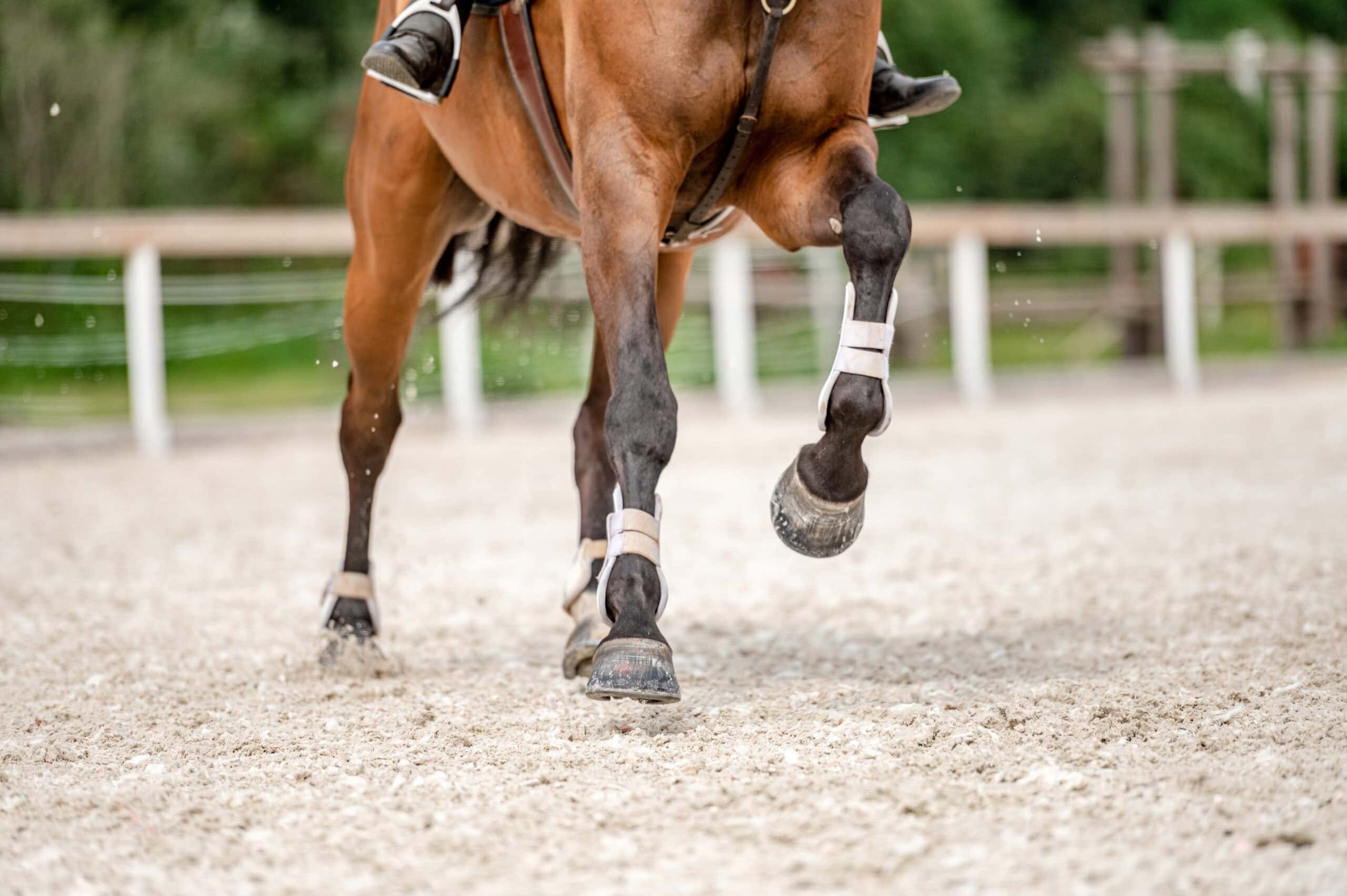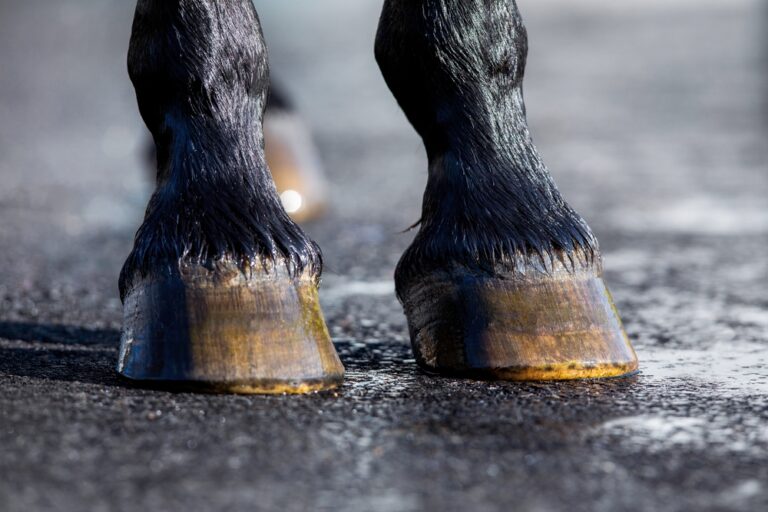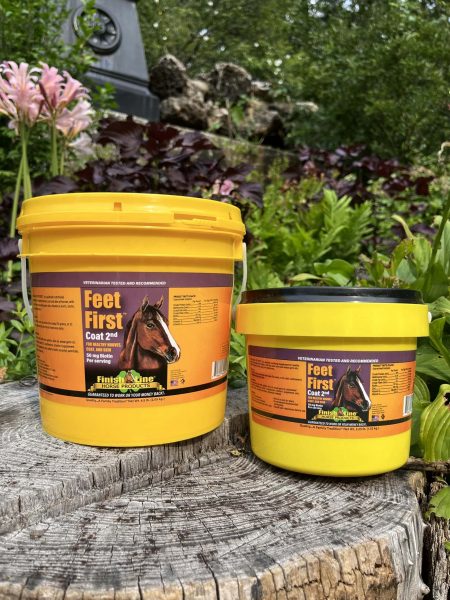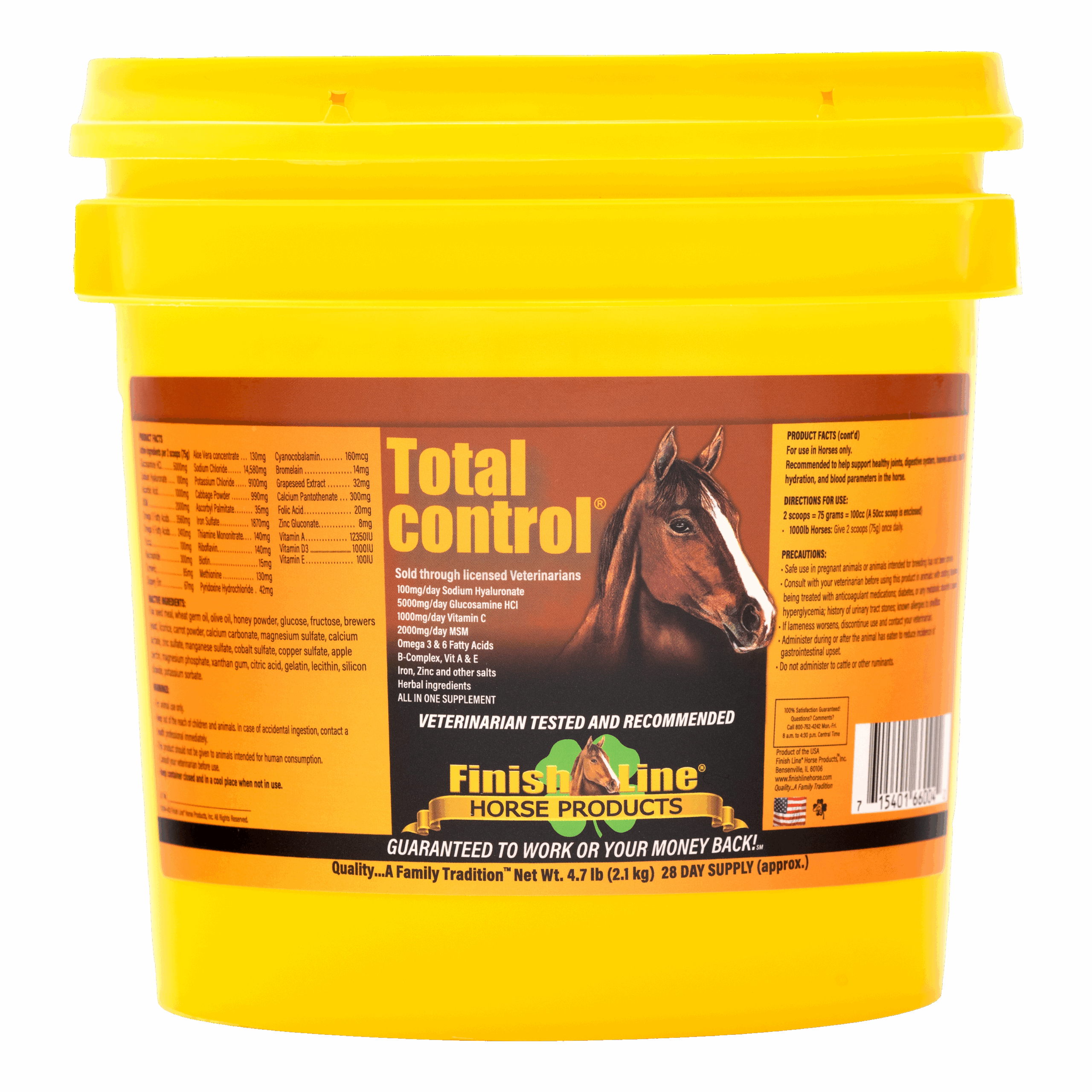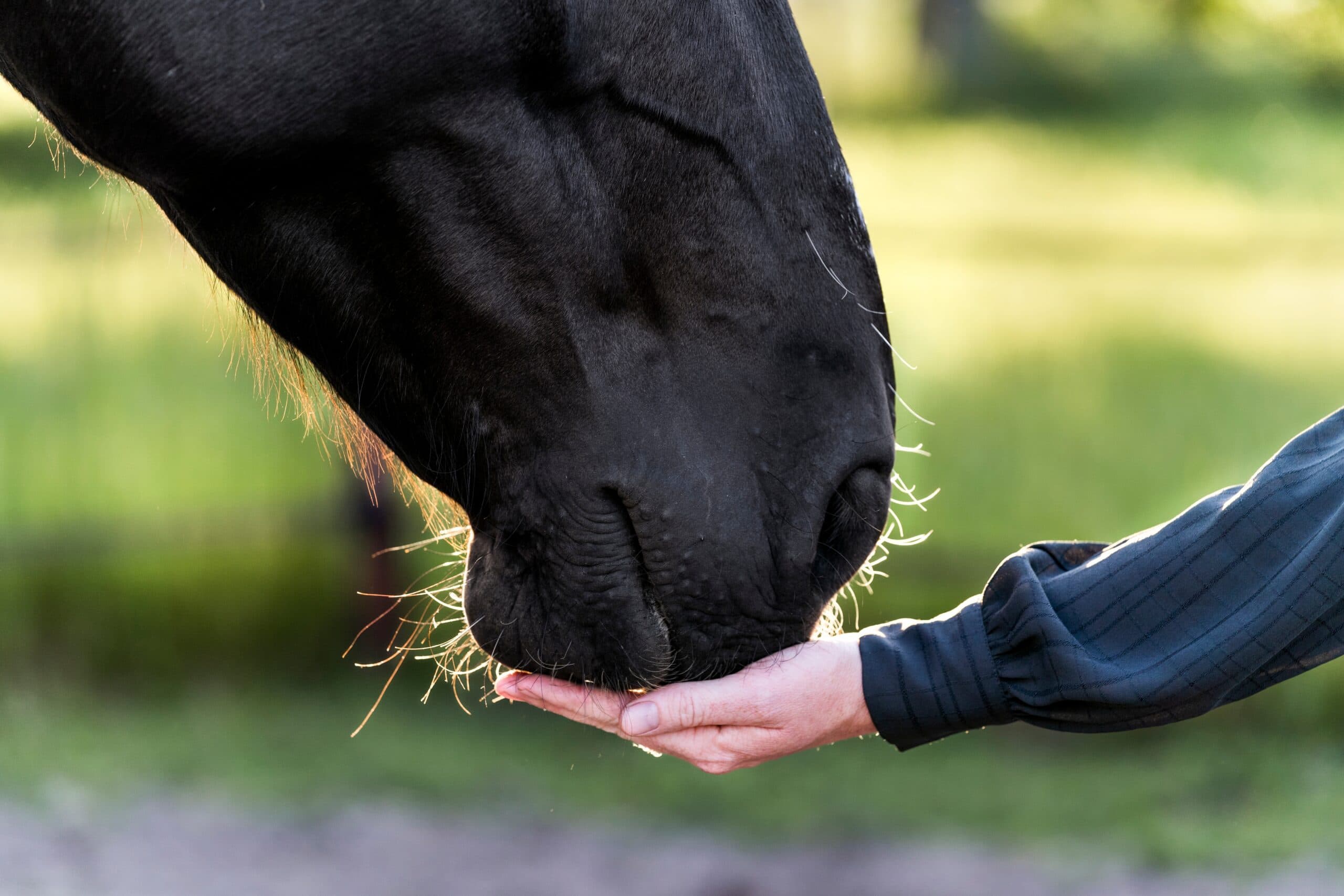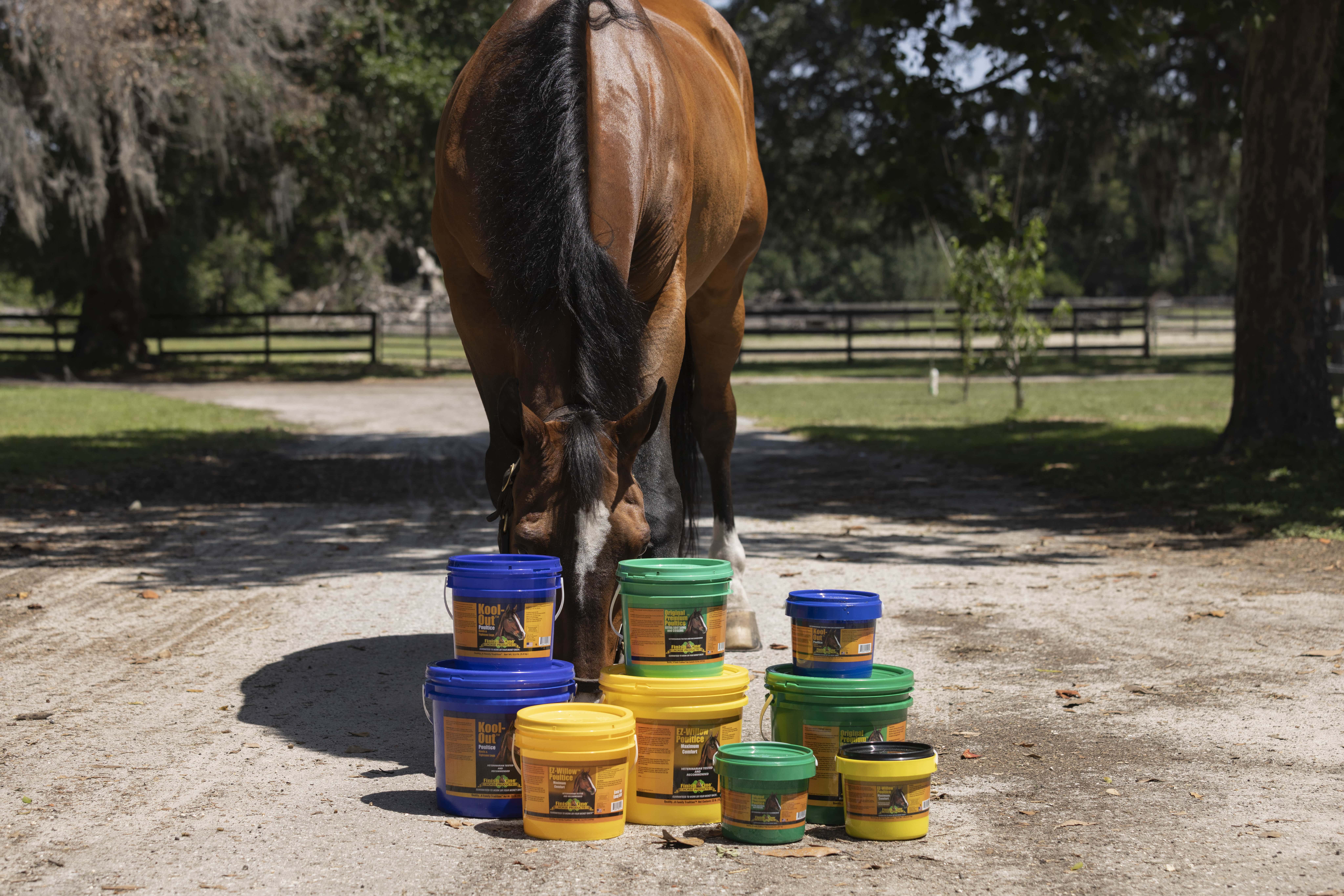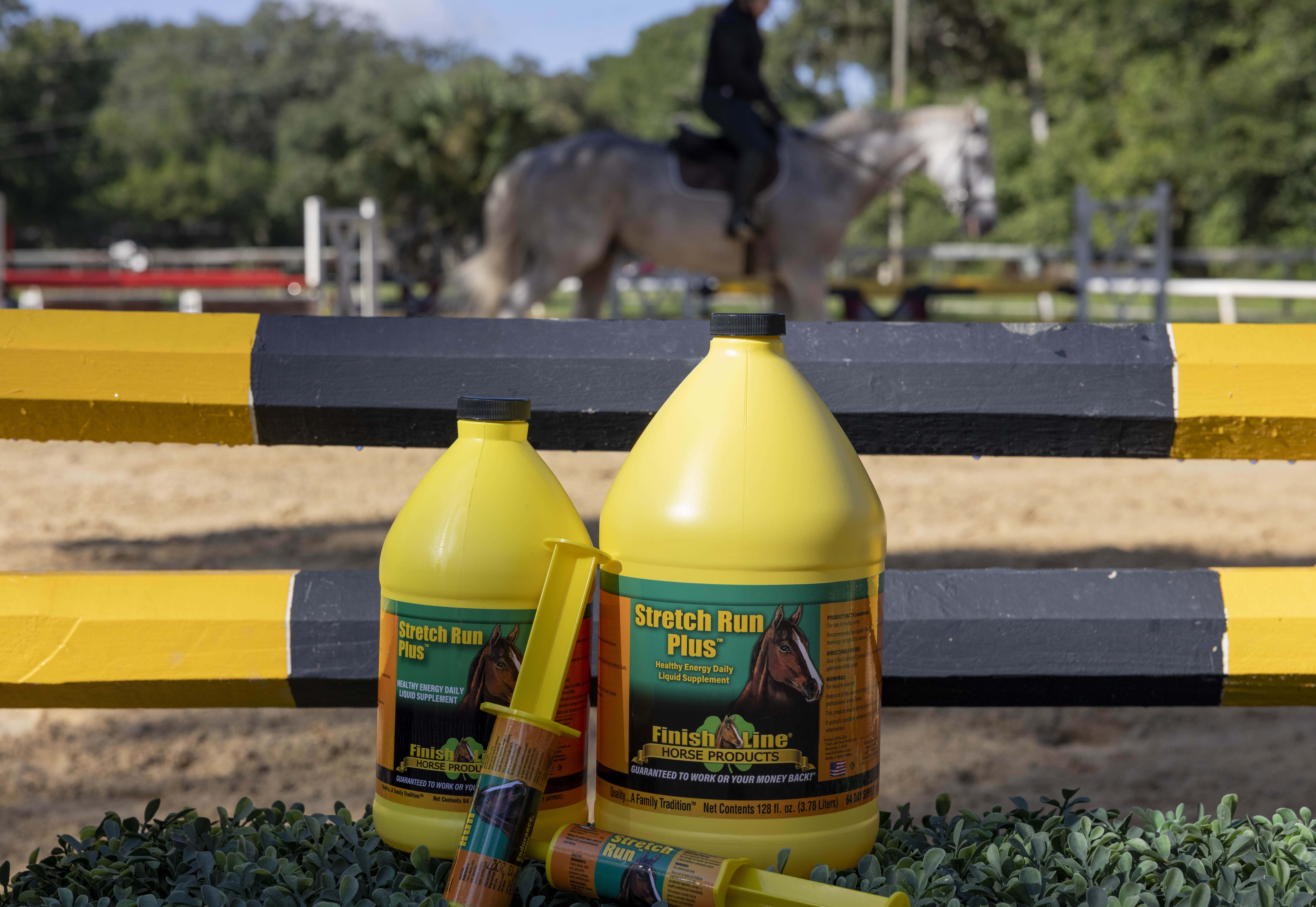The Many Benefits of Biotin to Support Hoof Health
While a number of ingredients can help support hoof health, biotin is a stand-out ingredient that can make a noticeable difference when it comes to hoof health.
Biotin, which is also referred to as vitamin B7, contains sulfur. Sulfur is important for hoof formation, because of the biochemical pathways in which sulfur relates to hoof function. It comes from the sulfur found in methionine, which is a sulfur-containing amino acid. This bond is very important for structural strength in hooves.
Biotin is also an essential nutrient for keratin production. Keratin is the main protein responsible for strong hoof health and is also what helps with the intracellular fatty cement in a horse’s hooves.
While biotin is typically found in the horse’s regular diet, the levels are usually not enough to be fully beneficial when it comes to supporting hoof health.
The recommended daily amount of biotin a horse should consume to support optimum hoof health varies depending on weight, and more might be necessary for horses who need additional hoof support.
Fortunately, biotin is known to be safe for horses. Excess is simply excreted through urine and toxicity is not something that has been reported when feeding high levels of biotin to horses.
High-biotin diets can be supportive to horses with cracked or brittle feet, and those who have a hard time keeping shoes on.
Not only does biotin help the hoof horn grow faster, but it can help with sole sensitivity, as the soles can also become stronger with added biotin.
Biotin may be best known for supporting hoof quality and growth; however, biotin doesn’t just support healthy hooves—it has several benefits in other areas of a horse’s health as well.
Coat quality can also be impacted by the levels of biotin a horse is getting in their diet. This is partly because keratin is also an important component when it comes to healthy skin and coat. The right levels of biotin can help prevent issues like dry, flaky skin and other skin-related issues.
Biotin also influences enzymes that make fat from sugars and the energy from this fat.
Biotin might help these cells break down fats more efficiently, therefore producing energy and possibly enhancing fat metabolism. Since biotin plays a role in a glucokinase enzyme that burns energy or stores it as glycogen, it might help with regulation, and the lowering of blood glucose levels.
For horses in heavy exercise and competition, this increase in biotin levels could help with getting the most out of their body’s nutrients and energy levels to improve exercise tolerance.
When low blood biotin levels are present, the lactate in their blood runs lower as well. This suggests high levels of biotin could influence sustaining higher speeds when exercising.





